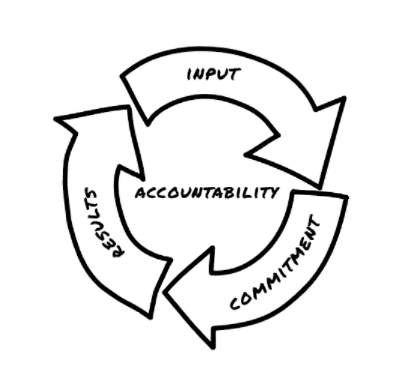It’s here…
The Shared Power Strategy™ Rule Book, complete with five new rules that will transform the way your nonprofit approaches strategy, making the process more effective, inclusive and equitable.
If you’ve been following along (here and here), you know we kicked off the year calling for a change. We’re tired of the way the sector has historically approached strategy work, and we’re tired of being part of the problem. From what we’ve been hearing from you, you feel the same.
So let us change it together.
Let us involve the people our organizations serve in the strategic process, right alongside our other stakeholders. Let us give them a real, meaningful voice in shaping our priorities, and stop creating an illusion of inclusion, once and for all. Let us hold ourselves accountable to them, and make sure our organizations are truly responding to their needs, not our perception of what we think they need. Let us be decisive; let us make tough choices and stop allowing a consensus culture to hold our organizations back from their true potential to create meaningful change. Let us be vulnerable. Let us open our work up to the careful examination of the people we purport to work for, and authentically ask for their feedback. Let us try things, admit when we’ve made mistakes, and learn as much from our failures as our successes. Let us evolve every day for the good of the people and communities we serve.
[bctt tweet=”We’re tired of the way the nonprofit sector has historically approached strategy work, and we’re tired of being part of the problem. Let us change it together. #sharedpowerstrategy” username=”ProsperStrat”]The Shared Power Strategy™ Rule Book explains how we can do just that.
Download the entire Rule Book here, or keep reading for the first of the five rules (we’ll share one rule each week for the next four weeks).
Rule 1: We Are ACCOUNTABLE
We hold our strategies up to the scrutiny of our stakeholders.
 As a nonprofit organization, we hold ourselves responsible to our stakeholders – to the people who affect and are affected by the work that we do. We recognize that only they can truly determine how well we’re doing at advancing our mission.
As a nonprofit organization, we hold ourselves responsible to our stakeholders – to the people who affect and are affected by the work that we do. We recognize that only they can truly determine how well we’re doing at advancing our mission.
That is why we begin shaping our strategies by transparently accounting for our actions. We share openly with our many diverse stakeholders what we’ve been working on, where we’ve been struggling and where we’ve been seeing traction.
Then, we encourage their input. We ask our stakeholders to weigh in on how we can improve. We ask them to tell us about what they need most from our organization, and how we can better meet those needs in the future. We work hard to understand their perspectives, and to help them understand one another, as well.
Ultimately, the perspectives of our stakeholders come together to form the priorities that organize our strategies – from our strategic plans to our communications, fundraising and program plans.
But our accountability to our stakeholders does not end with the creation of a plan or strategy that addresses their needs.
Instead, we work hand-in-hand with our stakeholders to determine what success really means to them. Then, we find a way to measure it, report results back to our stakeholders on a regular basis, and ask for their continued feedback.
[bctt tweet=”Our accountability to our stakeholders does not end with the creation of a plan or strategy that addresses their needs. ” username=”ProsperStrat”]In this way, accountability becomes more than just a one-way stream of self-reported information about our outputs or impact. It becomes a feedback loop in which our stakeholders’ perspectives continually shape our organization’s approach – where input drives commitment, commitment drives results, and results inspire more input.
Stay tuned for Rule 2 next week, and if you have feedback on the Shared Power Strategy™ Rule Book or questions about how you can put these new rules into practice at your organization, don’t hesitate to reach out. We look forward to shaping this new approach to nonprofit strategy with you, and helping it take hold across the sector.